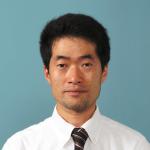


Theme
International Medical Education
Category
General
INSTITUTION
University of Tokyo, International Research Center for Medical Education

Medical education in Afghanistan has been severely damaged during 23 years of conflict. School facilities were destroyed, many teachers escaped from violence into other countries, and other teachers who remained had to work with few teaching materials and in isolation from academic communities. After the fall of Taliban regime in 2001, Afghan medical schools began to take steps for comprehensive reconstruction.
Changes brought into medical schools were generally welcomed by teachers and students. Some issues still remained, such as communication gap between the responsible two ministries of higher education and public health.
Afghan medical schools are eager to reach global trends in medical education.
The University of Tokyo ran a medical education project in Afghanistan from 2005 to 2008 and subsequently accepted Afghan medical teachers on training courses from 2009 to 2012. The aim of the project was to support strategic changes of medical schools, taking a long view of shifting from teacher-centred education to student-centred one, while significantly reducing the number of students which had been far beyond the teaching capacity of the faculty.
The project implemented problem-based learning courses for preclinical students and adopted case-based learning method for clinical students in Kabul Medical University. More than a hundred Afghan teachers attended training programmes in Tokyo.
The authors acknowledge Japan International Cooperation Agency for funding the activities in Afghanistan.
-
Curriculum and syllabus for Medical Faculty 2009. Kabul Medical University
-
Medical human resource development and health system in Afghanistan. The 11th International Research Forum for Medical Education, University of Tokyo, 2011
 Send Email
Send Email